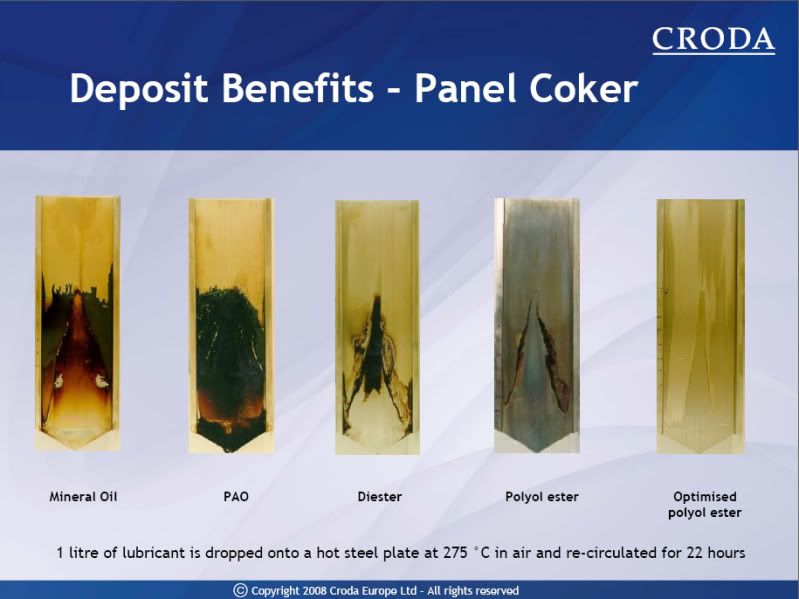Originally Posted By: mechanicx
...With those Audi and VW sludged pics, was it intakes sludged or general engine sludge? I think there's something wrong with those engines that has nothing to do with DI.
It is a direct result of DI. No fuel is available to keep intake and intake valves clean as noted above. The PCV goo enters the intake manifold where it leaves deposits on the intake runners and tumble flaps. Next place to deposit is the intake valves where you may have seen the many pics I have posted at 2k, 8k, 22k, 75k, 100, miles to name a few.
Of course this material then makes it to the cylinder where it contributes to deposits on plugs, fuel injectors etc. It is thought to contribute to ring deposits as well. Thus using fuel injector cleaner will help, but only for the fuel injectors and upper cylinder, not the intake valves which get no fuel.
As a side note, when I used SL-1 injection cleaner, it seemed to survive the combustion process to some extent. That run showed fuel and decreased flashpoint. This was the only run of roughly 6 runs that showed this. We need more testing to see if it does actually survive the combustion process and if so what affect, if any, this may have on valve deposits. Can't tell anything based on one run but it made me curious.
The valve buildup is the primary issue and causes many secondary adverse effects. Many of these are spelled out in VW's patent for the engine. This engine needs proper tumble flow for complete combustion. The valve deposits prevent that.
Also, it should be noted many of the pics I posted were on vehicles that have oil separators (both aftermarket and OEM) so don't think that will solve the problem for the 2.0FSI anyway. They help, but are pretty ineffective at stopping contaminants in the vapor stage. A permanent fix is to eliminate pcv gases getting to the intake tract. I have posted elsewhere several options to do this. I also agree with the folks above who recommend periodic "seafoaming" or induction service. I would recommend performing these before an oil change to prevent oil degradation.




